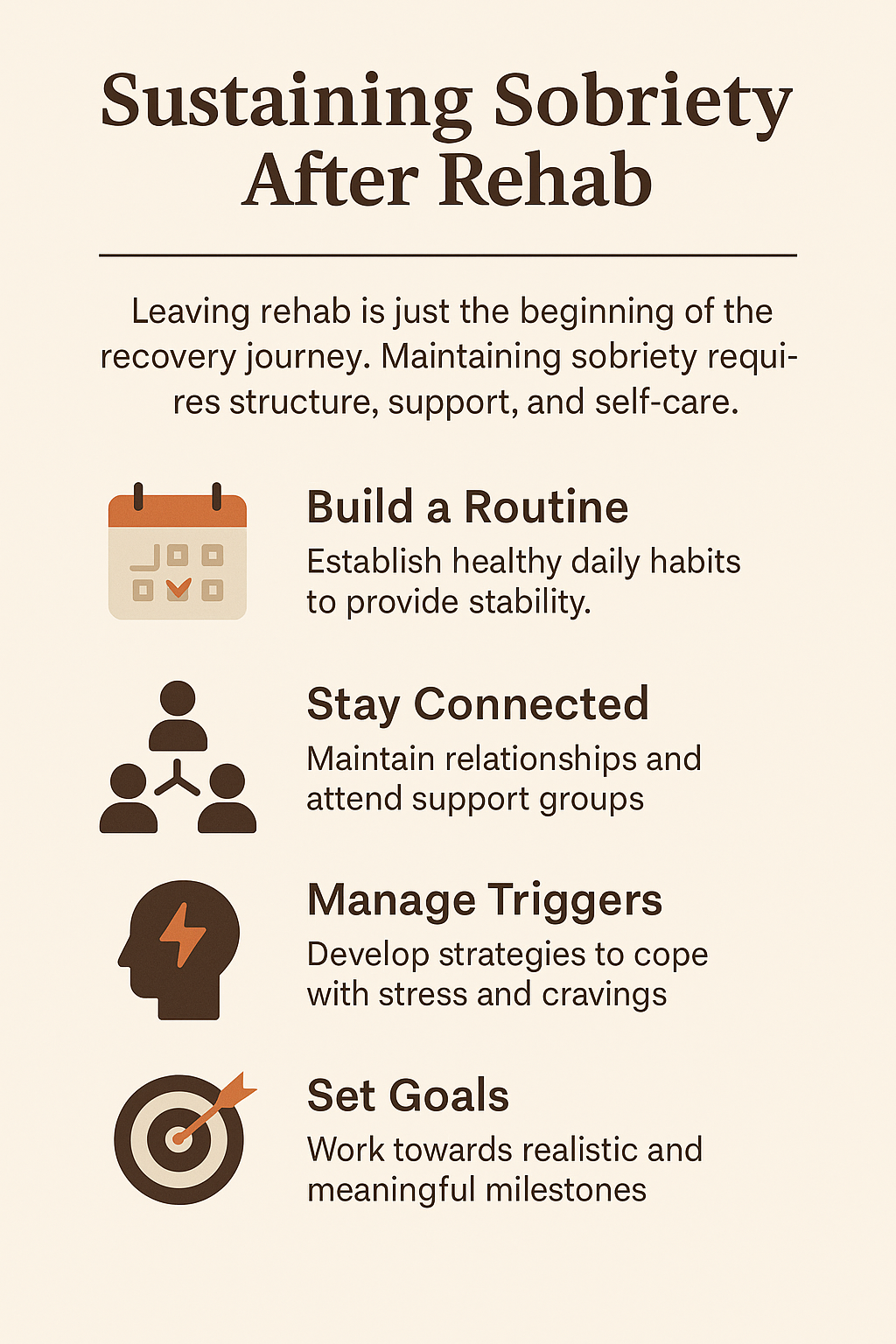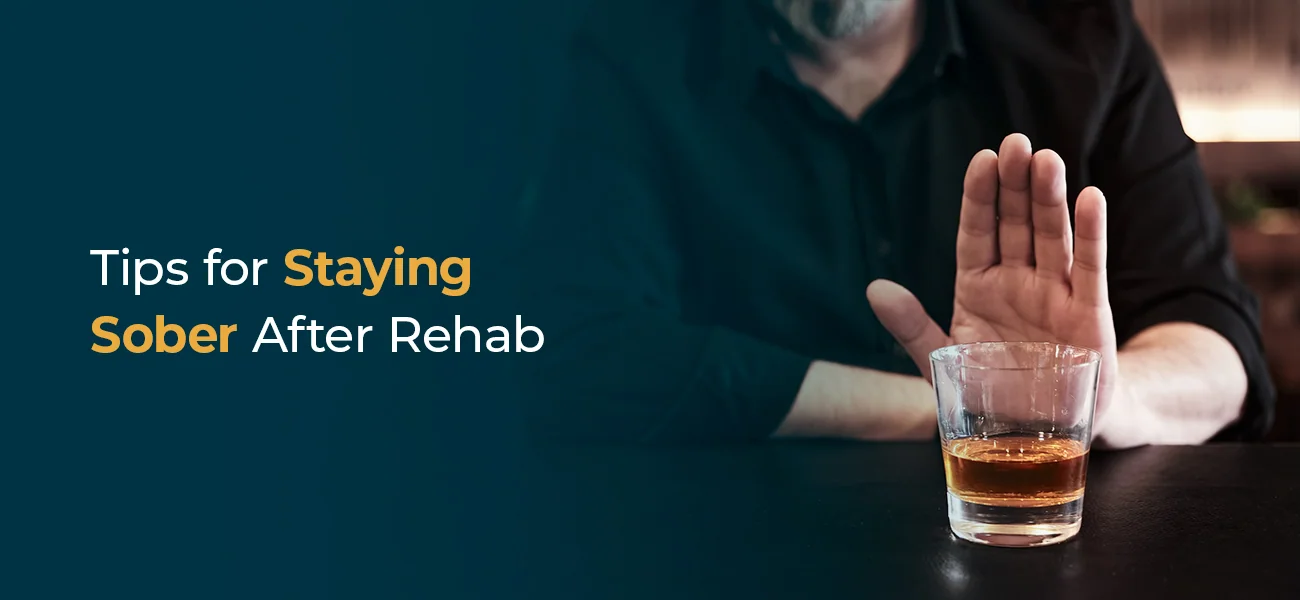Adjusting to life after rehab is a journey that blends hope, excitement, and a fair amount of uncertainty. Stepping back into everyday responsibilities—work, family, social situations—can feel like entering a new world, one where old habits may resurface and new expectations can feel overwhelming. I’ve seen how overwhelming this stage can be, but I’ve also seen the incredible growth that happens when you approach it with intention and support. Life after treatment isn’t about perfection; it’s about building routines, boundaries, and coping skills that help you stay steady, even when challenges pop up. My goal here is to offer practical, grounded tips that make this transition smoother and help you find confidence, stability, and even joy in your new sober chapter.
Understanding the Switch from Rehab to Everyday Life
Rehab is structured and supportive, offering clear routines, professional guidance, and a safe environment. Life after rehab is a little less predictable, and that can be both freeing and stressful at first. Moving out of that protective bubble means learning to manage triggers, maintaining routines, and building support systems outside the safety net of a treatment facility.
About half of individuals who complete rehab will experience at least one relapse before achieving long-term sobriety, according to the National Institute on Drug Abuse (NIDA). This statistic isn’t meant to scare you; it’s just a reminder that you’re not alone, and setbacks are pretty standard. The most important thing is to stay focused on progress, not perfection.
Building a Solid Foundation After Rehab
Success after rehab starts with the basics. Staying sober is easier when you set up routines and make choices that support your new lifestyle. Here are some key things to think about early on:
- Structure Your Day: Design a routine that keeps you active and helps you avoid boredom, which can trigger cravings.
- Stick With Follow-Up Care: Outpatient therapy, check-ins with counselors, and support groups offer ongoing accountability and encouragement.
- Set Healthy Boundaries: This sometimes means distancing from old friends or environments that aren’t supportive of your recovery.
Having a written daily schedule can provide a reliable foundation to fall back on when uncertainty arises. Establishing a habit of waking up at a specific time, eating healthily, and looking forward to productive activities can set the tone for the day and help reduce anxiety.
Quick Guide to Sustaining Sobriety Outside Rehab
Keeping sobriety going is a daily commitment, but it doesn’t have to be exhausting. These steps can help anchor your recovery and make things easier to handle as you get back into the swing of things:
- Find Your Support System: Friends, family, sponsors, and sober acquaintances are really important for encouragement and accountability.
- Maintain Your Well-being: A balanced diet, regular exercise, and adequate sleep all work together to enhance your mood and resilience.
- Develop Coping Skills: Learn techniques to manage stress, including meditation, journaling, breathing exercises, or reaching out to someone you trust when urges arise.
- Avoid High-Risk Situations: Steer clear of parties, gatherings, or places linked to old habits, at least in the early months. Prioritize your recovery over social pressure.
- Set Realistic Goals: Aim for short, achievable goals, such as making appointments or attending meetings, to give yourself plenty of opportunities to celebrate progress.
I’ve found these steps help make each day more manageable and remind you that you’re building something substantial, brick by brick.
Common Challenges and How to Overcome Them
Staying sober isn’t always a smooth ride, and obstacles pop up for everyone. Here are a few common challenges and ways I’ve seen people work through them:
- Cravings: These show up, sometimes at the worst time. Distracting yourself with a fun activity or reaching out to a friend can help you get through the time more easily.
- Lack of Support: If you feel isolated, search for new resources. Local support meetings, online communities, or group therapy can all make a difference.
- Stress: Everyone experiences it; the key is to have healthy ways to manage it. Try exercising, practicing mindfulness, or engaging in creative hobbies.
- Setbacks or Slips: Slipping doesn’t erase progress. Be kind to yourself, reach out for help, and treat it as an opportunity to learn what you need to adjust and grow.
Cravings and Urges
Cravings come and go, sometimes triggered by places, emotions, or certain people. Carrying a “toolkit” of go-to distraction techniques can really help. I always recommend having at least three things you can do in the moment, such as taking a walk, calling your sponsor, or even chewing gum, so you’re not left scrambling.
Difficult Relationships
Sometimes the people you love don’t quite understand your adventure. Open, honest communication about boundaries and your needs is essential. It helps clarify what support looks like for you and which situations or behaviors you want to avoid.
Dealing with Setbacks
If a slip does happen, getting support as soon as possible can prevent it from turning into a total relapse. Honest conversations with your therapist or a trusted friend can help reset your path. Most people in recovery encounter setbacks at some point in their journey. It’s part of the learning process, not the end of the road.
Developing New Interests and Hobbies
One of the best parts of sobriety is finding out what you really enjoy, sometimes for the first time in years. Early recovery is a great chance to try new activities. This can include activities such as painting, hiking, gardening, volunteering, or learning new skills online.
Filling your schedule with positive, rewarding activities keeps your mind busy and helps you build a new identity that’s free from drinking or using. Plus, hobbies are a good way to meet like-minded people who support your sober lifestyle.
- Fitness: Joining a fitness class or going for long walks can be both healthy and social.
- Arts and Crafts: Painting, drawing, music, and crafts can all be therapeutic.
- Volunteering: Giving back to your community is a rewarding experience that connects you with new circles.
- Skill-building: Cooking, coding, or reading new genres can provide a sense of growth and purpose.
You might even stumble upon hidden talents or interests that surprise you. If you’re unsure where to start, consider brainstorming a list of small activities to try or ask others in recovery about what they enjoy most. Joining a class or local club can also help you step into new friendships and a routine.
Building a Reliable Support Network
Having people who support your sobriety makes all the difference. This can mean family members, friends, sponsors, or people in recovery groups. Support networks give you someone to call when a rough day hits, and they celebrate victories with you—even the small stuff.
- 12-Step Programs: Groups like AA or NA offer meetings almost everywhere, as well as online forums for those who prefer virtual support.
- Outpatient Therapy: Many clinics offer weekly sessions that fit around work and home life.
- Peer Support Apps: Sober Grid and others can connect you instantly with people who understand what you’re experiencing.
You don’t have to share your story with everyone. Even just one or two supportive people make a big difference when you’re feeling shaky. Remember, building trust and connection takes time, so don’t rush. Reaching out when you need help is a strength, not a weakness.
Frequently Asked Questions
People often have many questions after completing rehab. Here are some that come up the most (and answers I wish I had when I was in your shoes):
Question: What should I do if I feel like I’m going to relapse?
Answer: Call a sponsor, friend, or therapist and talk through what’s happening. Sometimes, even taking a brisk walk can help clear your head. Don’t try to tough it out alone; most cravings fade faster when you reach out for help.
Question: How can I find sober friends?
Answer: Meetup groups, fitness classes, volunteer opportunities, and online recovery communities are all good options. Support meetings (whether 12-step or not) are another way to meet people who understand what you’re going through.
Question: What if my family doesn’t support my sobriety?
Answer: Boundaries become really important here. You don’t have to convince anyone who isn’t ready to understand. Focus on connecting with people who do support you, such as sponsors or peer groups. Your priority is your own health and recovery.
Looking Ahead and Staying Motivated
Sticking with sobriety gets easier as you build healthy routines and surround yourself with positive influences. Celebrate your progress, no matter how small—an extra week, a whole month, or just getting through a tough day. Tracking your achievements in a journal or using a sobriety tracker app can keep you motivated.
It also helps to revisit your “why.” Maybe you want to rebuild relationships, improve your health, or achieve personal goals you set aside. Staying connected to your reasons for choosing sobriety provides a strong foundation when challenges arise.
Recovery isn’t a one-time fix; it’s an adventure, with new growth around every corner. There will be highs and lows, but every day sober is worth it. Continue to find what works for you, and don’t hesitate to seek help when you need it. Your ride is unique, and your progress, no matter its pace, is something to be proud of. Wrapping up, staying on track after rehab is possible—and with support, structure, and honest self-care, you can build a future you’re excited about.
Video: Simple Habits That Help You Stay Sober

